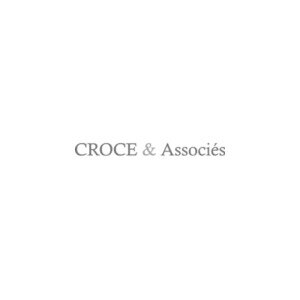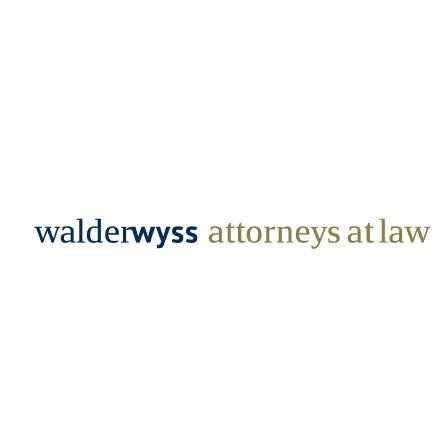Best Nonprofit & Charitable Organizations Lawyers in Geneva
Share your needs with us, get contacted by law firms.
Free. Takes 2 min.
List of the best lawyers in Geneva, Switzerland
About Nonprofit & Charitable Organizations Law in Geneva, Switzerland
Geneva is a central hub for international organizations and a thriving location for nonprofit and charitable activities. The legal framework governing nonprofit and charitable organizations in Geneva is designed to promote transparency, accountability, and effectiveness in service to the public interest. Swiss law recognizes various forms of nonprofit entities, including associations, foundations, and cooperatives, each with distinct legal attributes and requirements. Understanding these legal nuances is crucial for proper establishment and operation of a nonprofit or charitable organization.
Why You May Need a Lawyer
Numerous situations can arise that necessitate legal advice for nonprofit and charitable organizations in Geneva. Common scenarios include:
- Establishing a new nonprofit entity and choosing the correct legal form.
- Ensuring compliance with regulatory requirements, such as financial reporting and auditing.
- Navigating tax exemptions and handling any related disputes.
- Drafting and reviewing contracts and agreements for partnerships and fundraising activities.
- Handling employment law matters, including volunteer agreements and staff contracts.
- Addressing governance issues, such as board member responsibilities and organizational bylaws.
Having expert legal guidance can help prevent potential liabilities and ensure the longevity and success of your organization.
Local Laws Overview
The legal landscape for nonprofit and charitable organizations in Geneva is primarily governed by federal law, with specific cantonal provisions applicable. Key aspects include:
- Legal Forms: The most common forms for nonprofit activities are associations and foundations. Associations are relatively easy to create and are governed by the provisions of Articles 60-79 of the Swiss Civil Code. Foundations are subject to specific oversight and requirements outlined in Articles 80-89bis.
- Registration: Not all associations need to register with the commercial register unless they are engaged in a commercial activity or subject to audit requirements.
- Taxation: Nonprofits may apply for tax-exempt status, but must demonstrate the pursuit of public or charitable purposes per Article 56 of the Federal Act on Direct Federal Taxation.
- Governance: The organizational structure, particularly for foundations, must comply with specific governance standards, including the appointment and responsibility of trustees.
Frequently Asked Questions
1. What is the process to establish a nonprofit organization in Geneva?
Establishing a nonprofit typically involves drafting a constitution or articles of incorporation, registering with the relevant authorities if required, and applying for any necessary tax exemptions.
2. How can I ensure my nonprofit remains compliant with Swiss law?
Compliance involves adhering to regulatory requirements such as financial reporting, maintaining proper governance, and fulfilling tax obligations. Regular legal consultations can help ensure ongoing compliance.
3. Are there specific accounting standards for nonprofit organizations?
Yes, nonprofit organizations in Switzerland must comply with specific accounting standards outlined by Swiss GAAP FER 21, applicable to entities engaged in economic activities.
4. Can nonprofits engage in commercial activities?
Yes, but such activities must align with the organization's primary nonprofit purpose, and any profits should be reinvested into achieving that purpose.
5. What are the requirements to obtain tax-exempt status?
To be tax-exempt, a nonprofit must apply and demonstrate that its aims are of public or charitable nature. This often involves detailed documentation and adherence to specific standards.
6. How are board members governed in nonprofit organizations?
Board members have fiduciary duties and must act in the best interest of the organization, ensuring compliance with bylaws and legal obligations.
7. What are the liability implications for board members?
Board members may face personal liability for negligent acts or breaches of duty. Proper insurance and legal oversight can mitigate these risks.
8. Are there legal considerations for fundraising activities?
Yes, fundraising must comply with contractual obligations and regulations, ensuring transparency and lawful use of funds.
9. Can a nonprofit employ staff, and what legal issues must be considered?
Nonprofits can employ staff, but they must adhere to Swiss labor laws, including employment contracts, employee rights, and benefits.
10. Is there a legal requirement for auditing nonprofit organizations?
Nonprofits earning above a certain threshold may be required to undergo an audit. Associations aiming for public fundraising often fall into this category.
Additional Resources
For further assistance, consider exploring these resources:
- City of Geneva Official Website - Section on Associations
- Swiss Civil Code Articles 60-79 (Associations) & Articles 80-89bis (Foundations)
- Federal Tax Administration - Guidelines for tax-exempt status
- Swiss Foundations - National umbrella organization for foundations
Next Steps
If you require legal assistance with your nonprofit or charitable organization in Geneva, consider taking the following steps:
- Identify your specific legal needs and possible challenges facing your organization.
- Consult with a lawyer specializing in nonprofit law to navigate the complex legal landscape effectively.
- Prepare necessary documentation and organizational records for review and compliance checks.
- Stay informed about any changes in laws or regulations affecting nonprofit entities in Switzerland.
Through proactive management and specialized legal advice, you can ensure your organization operates smoothly and effectively achieves its mission.
Lawzana helps you find the best lawyers and law firms in Geneva through a curated and pre-screened list of qualified legal professionals. Our platform offers rankings and detailed profiles of attorneys and law firms, allowing you to compare based on practice areas, including Nonprofit & Charitable Organizations, experience, and client feedback.
Each profile includes a description of the firm's areas of practice, client reviews, team members and partners, year of establishment, spoken languages, office locations, contact information, social media presence, and any published articles or resources. Most firms on our platform speak English and are experienced in both local and international legal matters.
Get a quote from top-rated law firms in Geneva, Switzerland — quickly, securely, and without unnecessary hassle.
Disclaimer:
The information provided on this page is for general informational purposes only and does not constitute legal advice. While we strive to ensure the accuracy and relevance of the content, legal information may change over time, and interpretations of the law can vary. You should always consult with a qualified legal professional for advice specific to your situation.
We disclaim all liability for actions taken or not taken based on the content of this page. If you believe any information is incorrect or outdated, please contact us, and we will review and update it where appropriate.

















